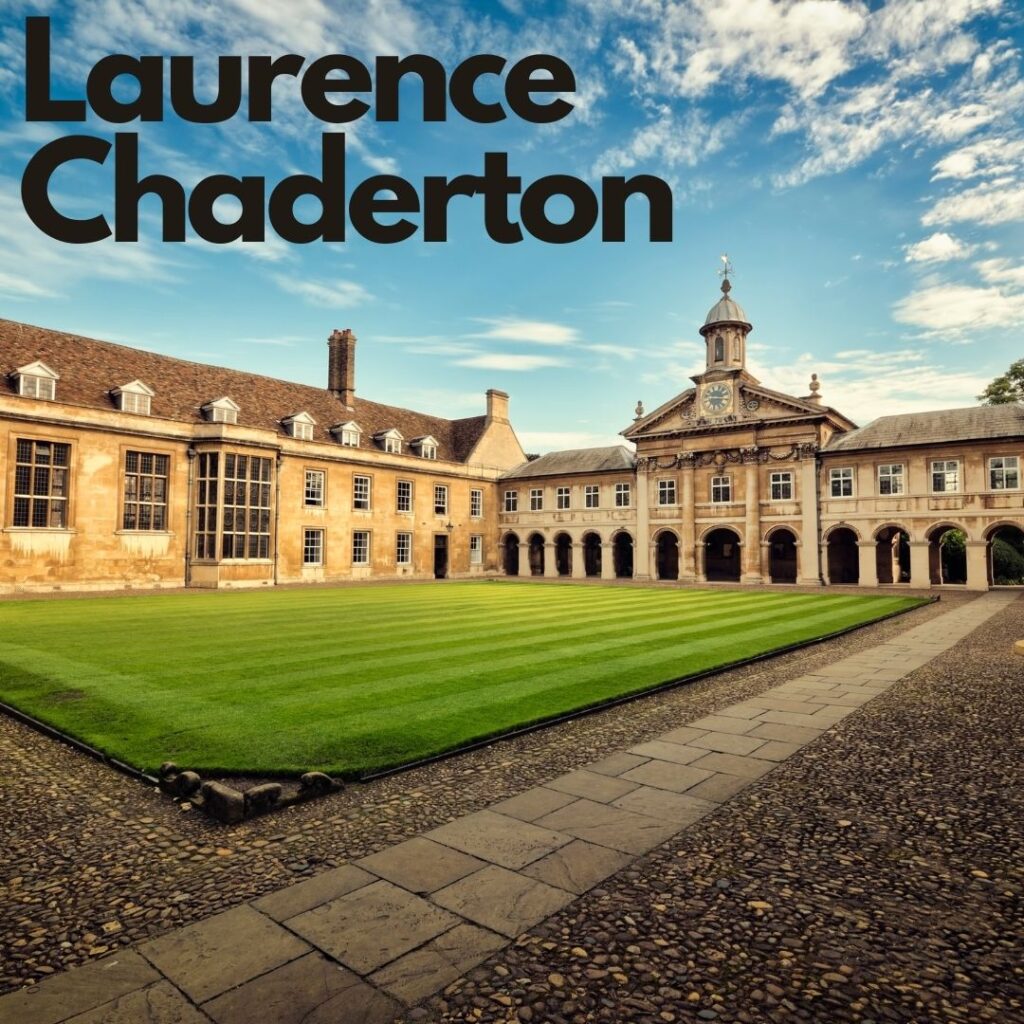
Laurence Chaderton 1536-1640
Laurence Chaderton is a name that may not be known among many Christians, but his impact on Puritanism and Christianity would place him as a theological giant. History tells us that Chaderton was a “superb orator,” and could preach for hours with a captive audience. One time, while preaching a two-hour-long sermon he declared that he had tired the patience of the audience. The audience insisted that he continue preaching, and even one man in the congregation cried out, “For God’s sake, sir, go on!” Upon hearing the response of the congregation, he continued his sermon for another hour, to the joy of his hearers. Chaderton helped establish the famous Emmanuel College at Cambridge and served as its first Master. Emmanuel College was the institution that produced many famous Puritans during the 17th century. Some notable Puritans that came out of Emmanuel College were: Thomas Cartwright, William Perkins, Jeremiah Burroughs, Joseph Hall, Thomas Watson, Thomas Shepard, John Cotton, John Harved, and Thomas Hooker, these men and more were influenced by Chaderton.
Chaderton was born in Lancashire to a wealthy Roman Catholic family. During his time at Cambridge, his parents were disappointed when they learned Lawrence had become a Protestant with Puritan convictions at Cambridge. In response, his father wrote him a letter that said, “Dear Laurence, if you will renounce the new sect which you have joined you may expect all the happiness which the care of an indulgent father can secure you; otherwise I enclose in this letter a shilling to buy a wallet with. Go and beg for your living. Farewell!” Laurence declined his father’s offer and remained a disowned Protestant. Despite the challenges, he graduated with many degrees and became a lecturer at the college.
Chaderton was a lifelong student of theology, a mentor, and a popular preacher. For nearly fifty years he served as the afternoon lecturer at St. Clement’s, and through the influence of his preaching many young men began to study the Bible and practice godliness. He excelled in Latin, Greek, and Hebrew. He also knew Spanish, Italian, and French. As a fellow of Christ’s College from 1568 to 1577 (when he married) his influence made the college ‘a Puritan seminary in all but name’, and his systematic program of bible study and discussion was revolutionary in Elizabethan England.
In 1584, he was approached by Sir Walter Mildmay to establish a new college at Cambridge.. Mildmay wanted Chaderton so badly to be the first master of the college, that if Chaderton refused the college would not exist. Any other institution would have offered Chaderton ten times more money than a newly established college. With Chaderton and Mildmay, Emmanuel College came into existence with Chaderton as its first master from 1584 until he stepped down in 1622, in his mid-eighties. It grieved him to step down as he enjoyed his role as master of the college and feared the college would lose its Puritan convictions. Chaderton was satisfied when John Preston was presented to him as his successor. Remarkably, he outlived Preston and his successor. Despite being retired, Chaderton was always consulted regarding the affairs of the college.
Chaderton represented the Puritans when he attended the Hampton Court Conference where the King James translation was first proposed in 1604. There were only four Puritans invited to the court, compared to the fifty Anglican ministers led by Richard Bancroft who were invited by James I. There was tension between the two groups, the Puritans wanted more reform and pushed their view of the ecclesiological structure being more faithful to the Bible, and the Anglicans wanted the church to remain the same. King James denied the Puritans’ desire for reform but allowed them to participate in the translation of the Bible. Bancroft tried to shut down the Puritans, but James encouraged the continued help of the Puritans wanting to have his new translation of the Bible in the churches around England that reflected the Hebrew and Greek texts. Chaderton was enlisted as a translator of the King James Bible and served in the First Cambridge Company, a group that translated from First Chronicles to the Song of Solomon, and many of the Psalms in the Bible. He used his linguistic expertise in Hebrew to lead the company to translate and he also used the (older) Geneva Bible as a reference to aid in his translation. One of the notable areas of translation is the linguistic poetic style of Psalm 23 which Chaderton played a major role in translating to English. Chaderton was 75 when the KJV was first published and he lived to be over 100.
In 1640 Chaderton’s long life, which had been greatly used by the Lord, drew to a close. Those who knew him reported that his wits were still with him and his eyes had not grown dim. In his memory, a monumental slab bearing a simple inscription was placed over his remains at the entrance of the college chapel. One man who knew Chaderton well summarized his life saying, “He lived to free men’s souls from the slavery of ignorance and sin and win them to Christ.”
